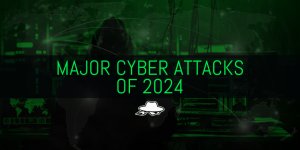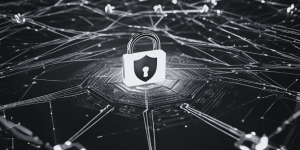Human Intelligence is the best defense against Phishing Attacks

Reading Time: 3 Minutes
Introduction
The threat of phishing attacks looms large in our digital era, and it continues to evolve with increasingly sophisticated tactics. Phishing attacks, often facilitated by social engineering, are a form of psychological manipulation used by hackers to trick individuals into revealing sensitive information or performing actions that compromise their security. While technology has made significant advancements in strengthening defensive systems, it is increasingly clear that human intelligence continues to serve as a vital line of defense against these nefarious attacks.
The Role of Social Engineering
Social engineering, the art of manipulating people rather than exploiting technical vulnerabilities, is the foundation of many phishing attacks. It preys on human psychology, leveraging trust, fear, and urgency to deceive individuals. Remarkably, it doesn’t require profound technical skills but relies on the human element to succeed.
In fact, 50% of organizations analyzed were victims of spear phishing in 2022, and a typical organization received 5 highly personalized spear-phishing emails per day. Spear-phishing attacks make up only 0.1% of all e-mail-based attacks, according to Barracuda data, but they are responsible for 66% of all breaches.
Organizations are dealing with a variety of impacts from successful spear-phishing attacks, and they are having trouble detecting attacks and responding quickly.
55% of respondents who experienced a spear-phishing attack reported machines infected with malware or viruses; 49% reported having sensitive data stolen; 48% reported having stolen login credentials; and 39% reported direct monetary loss.
AI and Defense Systems
The advancement of artificial intelligence has equipped defense systems with the ability to study previous attack patterns and even create new detection methods. Despite these technological advancements, targeted attacks, especially those involving social engineering, pose a substantial challenge. Such attacks can bypass most hardware and software defenses by employing sophisticated techniques that work on a psychological level.
No matter how strong your Firewalls, Intrusion Detection Systems, or Anti-Virus Software are, a single human mistake, can result in an attacker taking over all of the organization’s infrastructure, no matter what hardware, software, or endpoint security implementation that has been done from the defensive team.
People are more vulnerable than computers.
The Persistence of Phishing Attacks
The prevalence of phishing attacks endures, as scammers and criminal hackers constantly adapt their tactics to evade anti-phishing measures. Attackers employ various techniques, such as spear-phishing, whaling, and business email compromise (BEC), which are increasingly personalized and convincing. They might gather information from social media, company websites, or even past email conversations to craft more convincing phishing messages. Techniques like Zombie Phish, Shortened URLs, SPF/DMARC Spoofing, and more continue to make headway in breaching security systems.
Evolving techniques such as Zombie Phish, the use of shortened URLs, and SPF/DMARC spoofing, effectively breaching even highly fortified security systems.
The Human Element and Human Intelligence
Human error is an everyday occurrence, and it’s a universal experience. When it comes to cybersecurity, human errors, and the broader human element, can result in significant and costly consequences. According to the 2022 Data Breach Investigation Report by Verizon, human error continues to be a significant contributing factor to security breaches. A staggering 82% of breaches were attributed to the human element, encompassing successful phishing attacks, misuse of credentials, and various other forms of human oversight within the system. Furthermore, a notable 18% of data breaches can be directly attributed to employee errors.
Employees serve as the first line of defense and simultaneously can be the weakest link within an organization’s security infrastructure. It’s crucial to recognize the role individuals play in preventing successful phishing attacks.
Human intelligence, with its capacity for critical thinking, analysis, and adaptability, can bridge the gaps left by technical solutions and identify new and evolving phishing techniques. The ability to make judgment calls, question the authenticity of emails, and practice caution in interactions with unknown or unexpected contacts or recognize unusual content can significantly reduce the likelihood of falling victim to phishing attacks.
Effective cyber security training and awareness programs, for example by mimicking real-life scenarios can empower individuals to make informed decisions.
See Also: Solutions: Web Application Pentesting
Offensive Security Perspective
From an Offensive Security Perspective, our take on how you can protect better and train employees for more sophisticated attacks is related to the way organizations train their employees to fend off targeted attacks needs a significant overhaul. Presently, they often rely on basic online platforms that offer simulated phishing attack exercises, which fall short of preparing employees for real-world threats. The root issue here is that those crafting these training campaigns often lack the in-depth knowledge and skills needed to create truly immersive offensive security scenarios.
A more effective approach involves organizing two meticulously planned red team campaigns consistently. These campaigns should mirror the tactics used by actual malicious actors, experimenting creatively and spending a lot of time requiring a certain type of skill that has to go deeper into Reconnaissance (Recon) and Open Source Intelligence (OSINT) techniques to gather valuable insights on potential targets. The focus should be on personalization, creating unique attack scenarios for each employee based on extensive social engineering research.
These campaigns should incorporate techniques like spoofing, SPF record bypassing, and evading email security filters. This personalized, real-world approach helps employees gain a deeper understanding of the intricacies of modern cyber threats, fostering a more vigilant and cautious mindset, even within organizations that have multiple layers of security measures in place.
In summary, a well-executed OffSec Red Teaming approach isn’t just about raising Cybersecurity awareness; it’s about providing employees with practical experience to better prepare them for the evolving phishing threats.
If you would like to know more about how you can get such type of tailored Phishing Attack Simulation Assessments, check here.
Conclusion
According to a recent 2023 report on cyber threats involving over 2,000 organizations worldwide, 85% of these organizations consider email-based cyber-attacks a critical threat to their operations, with an increased reliance on digital communication channels. Alarmingly, 98% of companies reported facing at least one phishing attempt in the past year, with many experiencing a rise in more targeted and sophisticated phishing campaigns.
The growing volume of phishing emails remains a pressing concern. In the past year, 41% of organizations saw a notable increase in phishing emails, with 34% reporting an increase in spear-phishing—targeted attacks aimed at specific individuals. These tactics have led to compromised business emails in 94% of surveyed organizations and data breaches stemming from credential compromise in over 90%.
As phishing tactics grow increasingly complex, attackers are bypassing traditional security defenses by leveraging social engineering and targeting employees’ personal devices, like smartphones, which are often less secure. With the rise of AI-generated phishing schemes that convincingly mimic trusted contacts, companies face heightened risks from these tailored attacks.
Looking ahead, phishing is likely to remain a substantial threat to both businesses and individuals. Human error and susceptibility to social engineering techniques will continue to be key vulnerabilities. Therefore, reinforcing human awareness and training to identify phishing threats is more crucial than ever to counter the ingenuity of modern cybercriminals.
The specter of phishing casts a constant shadow, making every day a potential threat.
Be proactive, not reactive. Cybercriminals need just one flaw to strike.
Are you looking for a better way to secure your business? Whether you need a product audit, vendor security assessment, or overall security testing, we can help. Our team of experts will work with you to identify your specific security needs and provide tailored recommendations to improve your overall security posture.
To find out more about how Black Hat Ethical Hacking can help you, check out our Solutions







